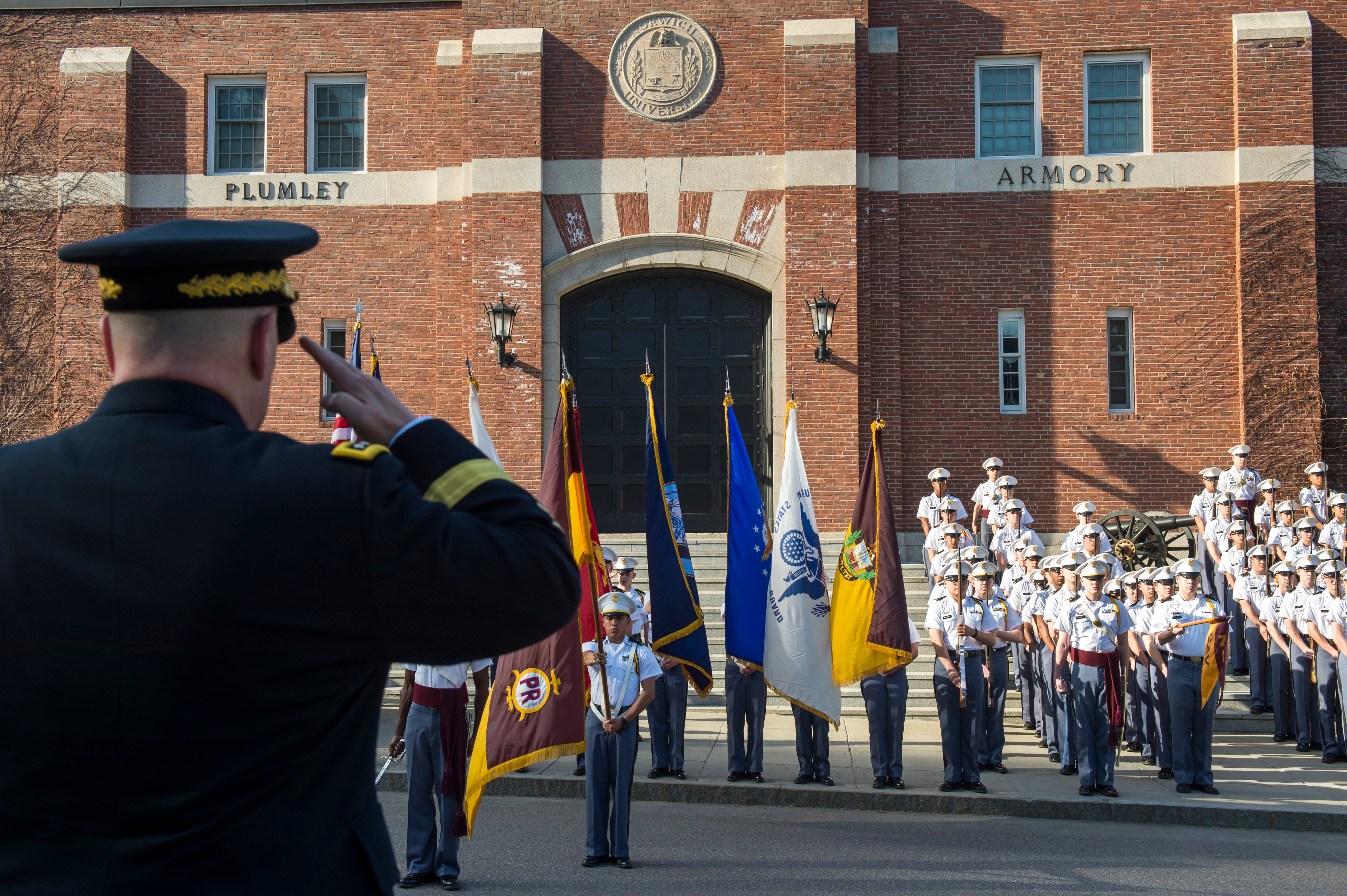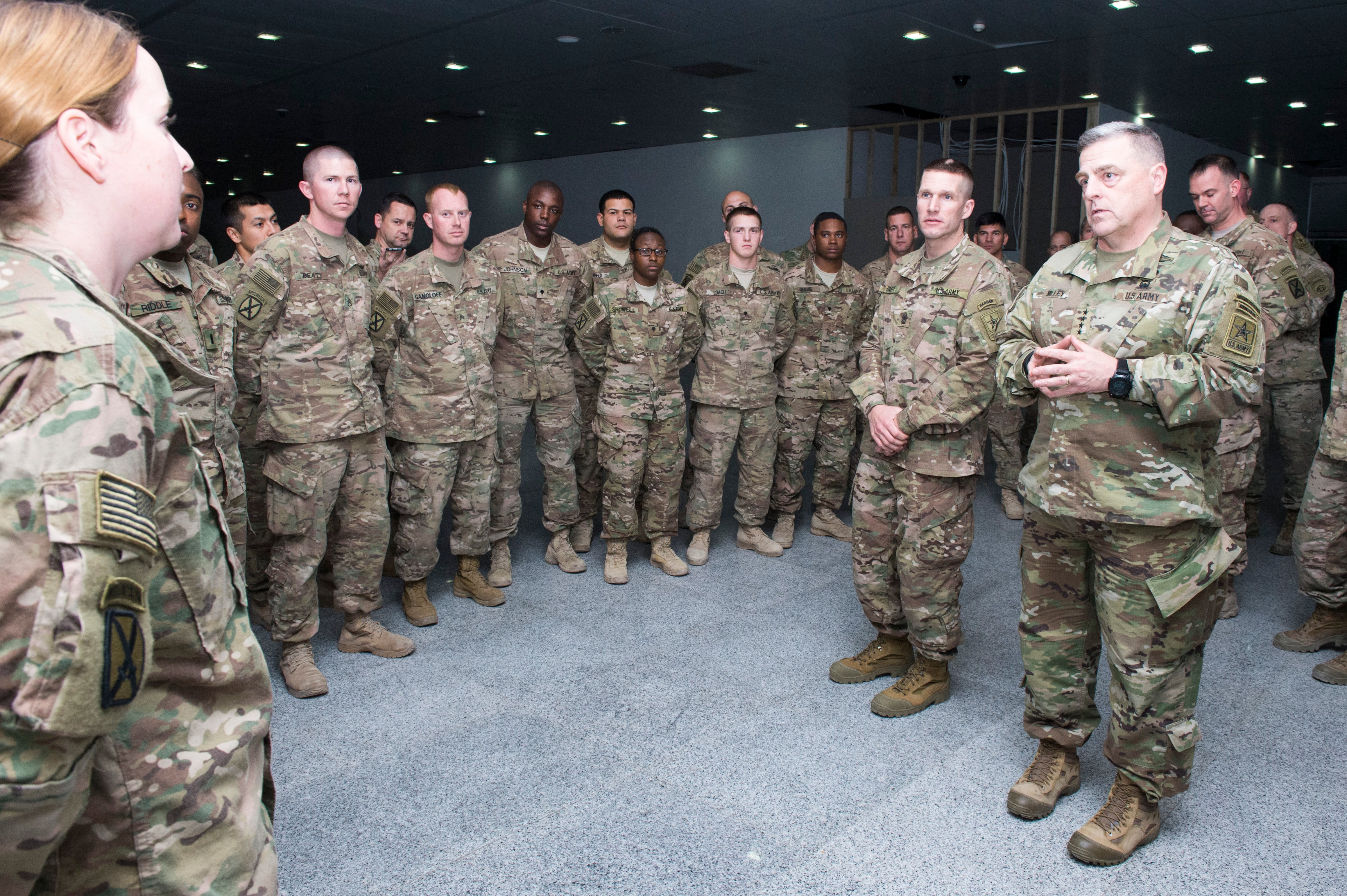Competence, compassion and character should drive the men and women who want to lead America's sons and daughters into battle, the Army's top general said Thursday as he marked the 100th anniversary of the ROTC program at Norwich University.
"Our sons and our daughters of this nation deserve good leadership," Army Chief of Staff Gen. Mark Milley said to an audience filled with ROTC cadets. "If you look at readiness, if you look at combat power, the most important element of that is not technology. It's not the guns, the planes, the ships. It's not the weapons. It's not the computers. It's the people, and, most importantly, it's the leaders."
Milley characterized leadership as "far and away the most important element" to winning "in the crucible of ground combat."
Leaders must be competent, Milley said.
Soldiers are not going to follow a platoon leader who can't call and direct fire, or call for a medevac or close-air support, Milley said.
"There's no room for second place in combat," he said. "There are no coins or trophies given out for ties. You either win or lose. What'll make the difference … is going to be your personal competence."
Leaders must also be compassionate, Milley said, caring for their soldiers as if they would their own children.
And leaders must have "tremendous character," he said.
"I guarantee you your character is going to be tested like it never has before," he said. "You're going to have to have steel spines to endure the pressure you're going to face in the years ahead."

Army Chief of Staff Gen. Mark Milley, visits Norwich University for its Reserve Officer Training Corps Centennial Symposium, April 21, 2016. Milley said that as future leaders in the military, students must prepare now to lead and win in a complex world.
Photo Credit: Staff Sgt. Chuck Burden/Army
These characteristics are critical for all military leaders, especially for cadets preparing to enter the service, because of the turbulence in the world today, Milley said.
"If the world if 1916 was complex, or the world of 1945 was complex, the world of 2016 is intensely complex, and I can tell you that from personal experience," he said. "You'll be dealing with terrorists, you'll be dealing with hybrid armies, you'll be dealing with little green men, you'll be dealing with tribes, you're going to be dealing with it all, and you're going to be dealing with it simultaneously."
Cadets preparing to don the uniform will find themselves "engaged in a very deep, long struggle with radical terrorism," Milley said. They also will face a revanchist Russia, an aggressive China, a provocative North Korea and Iran, and "any other multiple contingencies that may arise."
After his remarks Thursday, Milley also took questions from the audience, discussing issues such as efforts to fight the Islamic State group in Iraq as well as U.S. military presence around the world.

Army Chief of Staff Gen. Mark Milley talks to soldiers serving in Erbil, Iraq, Dec. 18. Milley was on a five day tour of the U.S. Central Command area of responsibility.
Photo Credit: Staff Sgt. Chuck Burden/Army
On Iraq, Milley said "very, very significant progress has been made" against the Islamic State group.
"Progress, however, is not winning," he said. "No one should be high-fiving in the end zone yet."
President Obama has tasked the military to destroy the Islamic State, Milley said.
"I am confident that the strategy we are currently executing is applying a significant amount of pressure and a lot of punishment to that organization," he said. "It remains to be seen whether or not that is going to be enough to destroy it, with the common understanding of the world 'destroyed.'"
Meanwhile, ongoing efforts have left the enemy without "the strategic momentum, which they did have," and the group also has suffered "a tremendous amount" of casualties, including in their leadership ranks, and their finances have been affected, Milley said.
"They're under a very, very significant amount of pressure from the air, from the ground, and through other domains," he said.
The group is not destroyed yet, however, Milley said.
"I believe we will do that," he said. "I do think we're on the right path."
When asked about whether the U.S. has the right number of troops stationed overseas, Milley said "that's a tough question that's currently under debate."
The issue is whether the U.S. has too much of a forward presence, he said, adding that many partners and allies around the world want to work alongside U.S. troops.
"There is something to be said about being there," he said. "Our allies and partners do want us."
Michelle Tan is the editor of Army Times and Air Force Times. She has covered the military for Military Times since 2005, and has embedded with U.S. troops in Iraq, Afghanistan, Kuwait, Haiti, Gabon and the Horn of Africa.





